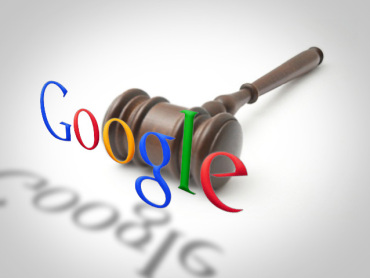Have you ever had something posted about you online that you would never want to pop up on Google? An old high school class picture of you in braces with an extra hundred pounds alongside the President of the Chess Club? That sleazy MySpace account that somehow cannot be deleted? What about a bunch of old AIM statuses complaining about middle school drama between you and your besties?
Thanks to the May 13 verdict from the high court of the European Union, Google and other search engines on the Internet must allow European internet users to delete any information on Google they do not want associated with their names. While this verdict may provide relief to censoring of the internet is a destructive measure that undermines global freedoms.
Say a ruthless, yet anonymous, Internet blogger writes a post that falsely portrays a person, or reveals personal or embarrassing secrets that that individual never intended to be open-to-view by the entire Internet. With the EU’s verdict, now that person can send a request to Google to delete this undermining post. At the same time, any European could ask Google to take down that mortifying school picture from freshmen year. More significantly, if an individual commits a minute misdemeanor that the police had already taken care of, only to find weeks after that an article has been written outright bashing that person and calling further action to be taken. To your relief, the EU’s decision now provides comfort because Europeans have the right to remove this link from the public’s view.
However, the negative implications from this ruling greatly outweigh these positives.
Officials who were caught for taking bribes could just eradicate the link to an article written about their corruption. But should a corrupt official’s misconduct be hidden from his country? A business with poor reviews could simply delete the links to these reviews for when a potential customer looks them up, and leave only the good comments about their business. Should a business be able to mask their downfalls from customers? Clearly, the EU’s ruling could result in a criminal hiding his background from the public realm, a political official’s exception from being recognized as corrupt, or even just a company’s false advertisement.
Within days of the rule, Google has already received thousands of demands to have personal links deleted. In response, Google is working to make a system within two weeks that will allow links to be deleted upon users’ requests. The company’s quick decision has been judged by critics concerned about its censorship implications, yet hailed by EU privacy regulation supporters. Upon hearing of the EU’s case, Google described the outcome as disappointing for “search engines and online publishers in general—” as they work towards pleasing the demands of Internet users, as well as the EU.
Similar to the impacts of the EU’s decision, the People’s Republic of China has rules, administrative regulations, and more than sixty Internet bylaws that force the imprisonment of thousands of journalists and Internet writers in the country. Most businesses and individuals in China censor their own communications to avoid legal and economic repercussions— a tactful act among the country that keeps businesses and individuals from being recognized for being corrupt or dangerous. This exact ability to delete one’s own information on the Internet will now be allowed by the EU, and will allow individuals to get away with anything without it’s publicity on the Internet.
While the European Union is a far way off from the stringent internet restrictions in China it similarly undermined the freedom users have come to expect from the internet. The verdict to allow individuals to be able to delete information about themselves that they no longer want public is understandable, for there are good reasons to let an individual erase embarrassing old high school pictures. However, the EU should not have made a new regulation against Google so powerful that it could limit press freedoms, promote censorship, and allow lawful information to be undisclosed to the public.








